 |
 |
 |

Dart NeuroScience LLC Generosity Launches TDLC Seminar Series!
TDLC's first academic seminar series is made possible through our partnership with Dart NeuroScience, LLC (DNS), a San Diego-based company engaged in discovering new technologies and developing new therapies to help maintain cognitive vitality throughout life. The DNS – TDLC Seminar Series will kick off on Wednesday, September 10, 2014 (James McClelland) and conclude in August 2015 (Fred H. Gage). Seminars will be held each month, every other Wednesday from 3:00 - 4:00 PM/PST, at the Sanford Consortium/Duane J. Roth Auditorium, in La Jolla, California.
This new platform will serve as a means of sharing a body of excellent science related to the role of time and timing in learning and memory with the larger Southern California scientific, education, and industry community, the TDLC research community, and DNS leadership and researchers. Seminars will be webcast in High Definition to the DNS campus, and available for all TDLC members, institutions, partners, and to the general public to view.
|
TDLC's First MOOC Yields a Staggering Number of Students on Coursera!

TDLC's Terry Sejnowski, with Barbara Oakley, put together a set of lectures for Coursera on "Learning How to Learn," which launched on August 1, 2014, and continued through the month.
Coursera is an education platform that partners with top universities and organizations worldwide. They offer free online courses, and share a vision of offering everyone access to a world-class education. The goal: "To empower people with education that will improve their lives, the lives of their families, and the communities they live in." Coursera has had a remarkable impact already, logging over 22 million enrollments, into 571 courses, from students representing 190 countries, and with 240,000 students participating in their most popular class.
TDLC's first entrance into Coursera showed tremendous worldwide interest and a potential for large educational impact: By half-way through the Coursera, 174,38 learners had joined from 206 different countries! Click here to read more about the course! Click here for the history of this MOOC.
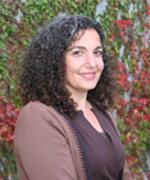
Andrea Chiba in the News:
Four UC San Diego Faculty Win ‘Early Concept’ Grants from Obama’s BRAIN Initiative
TDLC Co-Director Dr. Andrea Chiba is one of four scientists at UC San Diego (among 36 recipients nationwide) who have been awarded Early Concept Grants for Exploratory Research (EAGER) awards from the National Science Foundation! TDLC researchers Janet Wiles and Laleh Quinn are also mentioned as primary researchers on the grant! Read more 
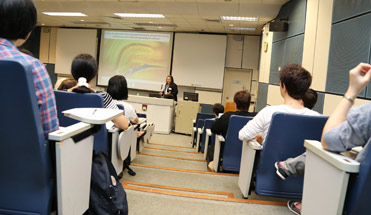
Andrea Chiba presents at the Science of Learning - Summerfest 2014, at The University of Hong Kong
(June 9-13, 2014)
TDLC co-Director, Andrea Chiba represented Science of Learning Centers in the United States (and at TDLC) in this global conference that was described as: Stimulating and Incubating Interdisciplinary Research on Learning. Dr. Chiba presented Keynote 3: The Temporal Dynamics of Learning: Synchronizing Science with Education. More 
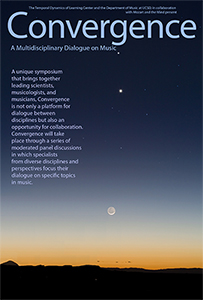
Convergence
Music Symposium:
Videos now available!
Videos of the Convergence Music Symposium panel discussions are now viewable here! The "multidisciplinary dialogue on music" was organized by TDLC and the Department of Music at UC San Diego, in collaboration
with Mainly Mozart's Mozart and the Mind. Panel discussion videos of the event, organized by TDLC's Alex Khalil and John Iversen, are now available!
 More about the event More about the event
 Panel discussion videos Panel discussion videos
 Blog post: Phenomenological Experience in Music: Between a Referential and Absolute Approach (in Pathways in Music, May 24, 2014) Blog post: Phenomenological Experience in Music: Between a Referential and Absolute Approach (in Pathways in Music, May 24, 2014)
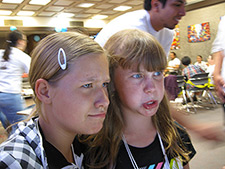
Face Camp 2014:
Astronauts In Space!
TDLC’s Face Camp is an innovative concept that combines educational outreach with basic science. Conducted at the University of Victoria in British Columbia (UVic), Face Camp is a free, one day workshop where typically developing and special needs children learn about the "science, art, and fun" of human face recognition. The TDLC camps have been a bona fide success with nearly 1,000 children attending the event over the last seven years. The theme for this year’s camp was “astronauts in space.” The 120 children had a blast running through the astronaut obstacle course, morphing their face with the face of their favorite alien and staying fit with astronaut movements that will prepare them for future space walks. More
 Dr. Gyuri Buzsaki Receives Awards: Dr. Gyuri Buzsaki Receives Awards:
Gyuri Buzsaki Selected As A Thompson Reuters Highly Cited Researcher for 2014!
TDLC Investigator Dr. Gyuri Buzsaki has been selected as a 2014 Thompson Reuters Highly Cited Researcher. TDLC's Dr. Rusty Gage is also a member of this distinguished group, selected in a previous year. To earn this distinction, a researcher "ranks among the top 1% most cited for their subject field and year of publication, earning them the mark of exceptional impact." Members represent "some of the world's leading scientific minds." More 
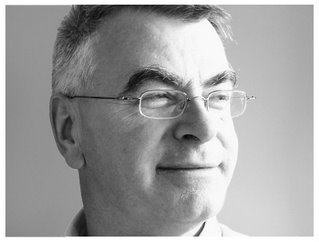 Gyuri Buzsaki Receives the Ariëns Kappers Medal Gyuri Buzsaki Receives the Ariëns Kappers Medal
Gyuri Buzsaki received the Ariëns Kappers Medal on July 1, 2014, for his contribution to neuroscience, in particular for his role in understanding brain oscillations. This honor is awarded by the Royal Netherlands Academy of Arts and Sciences on recommendation by the Netherlands Institute for Neuroscience to people who made exceptional contributions to neuroscience. More about the medal
Perceptual Expertise Network to Hold its 30th Workshop!

It's hard to believe, but the Perceptual Expertise Network will soon hold its 30th workshop! Our first meeting was in February 2001. To celebrate this milestone, we will hold this workshop as a satellite event the day before the annual Vision Sciences Society 2015 conference, and we invite all PEN members, alumni, guests, and friends to join us for a day of science and celebration. An invitation email will be sent to TDLC members and PEN alumni soon.
Date: May 14, 2015 (day before VSS begins)
Location: Tradewinds Island Resorts, St. Pete Beach, Florida
Questions/inquiries should be sent to Magen Speegle (magen.a.speegle@vanderbilt.edu)
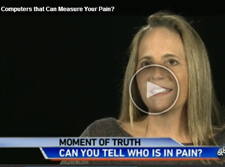
Man vs. Computer: Which Can Best Spot Pain Fakers?
TDLC's Marian Bartlett discusses her team's cutting edge research at UC San Diego, that could "change how doctors treat patients and their pain." (ABC News, video and article, 5/1/14) Wach the video
Paula Tallal and Fast ForWord are featured in Wired Magazine:
Game your brain: The new benefits of neuroplasticity (Wired, 4/17/14)
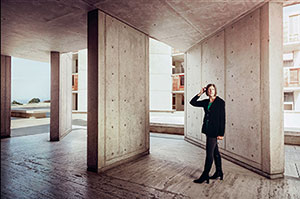
The article features TDLC Investigator Paula Tallal and her work on Fast ForWord. The article discusses brain plasticity, brain-training games, and touches on how Dr. Tallal's work with Michael Merzenich may lead to a new understanding of -- and treatment for -- dyslexia.
More
* Photo: Paula Tallal at the Salk Institute. Credit: Chris Crisman, WIRED.
 Qualcomm Institute Announces Seed Grants to Build Clusters in Brain, Medical and Robotics Research Qualcomm Institute Announces Seed Grants to Build Clusters in Brain, Medical and Robotics Research
The Qualcomm Institute at UC San Diego has given grants to 35 new projects that are part of the institute's Calit2 Strategic Research Opportunities (CSRO) program. Among the 35 winning proposals is TDLC investigator Leanne Chukoskie's project to develop a "NeuroGaming Center at UC San Diego". More
|
|

|
Note: NSF annually requests Research Highlights from TDLC investigators. The highlights (below) describe some of the exciting, diverse studies being completed at TDLC. Additional highlights will be included in the following newsletter.
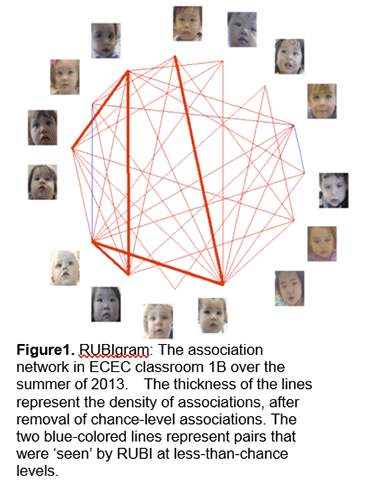 Human-Robot Interaction (HRI) as a Tool to Monitor Socio-Emotional Development
in Early Childhood Education Human-Robot Interaction (HRI) as a Tool to Monitor Socio-Emotional Development
in Early Childhood Education
TDLC’s Moshen Malmir, Deborah Forster and Javier Movellan in the Machine Perception Laboratory, in collaboration with Kathryn Owens and Lydia Morrison from UC San Diego’s Early Childhood Education Center (ECEC), demonstrated (Malmir et al., 2013; Movellan et al., 2014) the potential of using social educational robots in the classroom, not only successfully matching staff’s independent evaluation of children’s game preference, by successfully capturing affective behavior (via facial expression recognition,) but also monitoring relational aspects of spontaneous behavior among young children.
Personalized Review Improves Students’ Long-Term Knowledge Retention
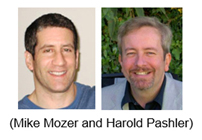 A software tool that provides individualized review of course material to middle-school students produces a 16.5% boost in retention of complete course content one month after the term’s end, relative to current educational practice. Individualized review also leads to a 10% improvement over a more generic one-size-fits-all review strategy. A software tool that provides individualized review of course material to middle-school students produces a 16.5% boost in retention of complete course content one month after the term’s end, relative to current educational practice. Individualized review also leads to a 10% improvement over a more generic one-size-fits-all review strategy.
Click here to read more about this and other TDLC 2014 Highlights 
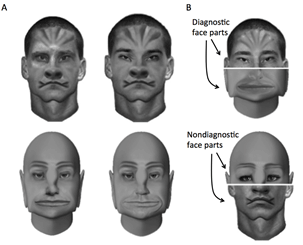
Face Perception
TDLC’s Kao-Wei Chua, Jennifer Richler and Isabel Gauthier from Vanderbilt University have discovered that the special strategy used to look at faces can be altered in just a few hours of training. Click here to read more about this and other TDLC 2014 Highlights 
Attention in Children is Related to Interpersonal Timing
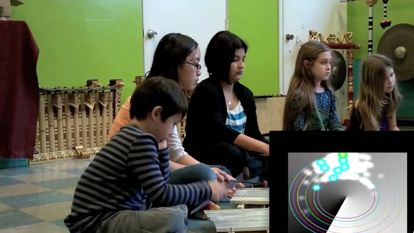 TDLC researchers led by Victor Minces and Alexander Khalil, have found that children’s ability at interpersonal timing, or synchrony, is related to attention as measured by cognitive tests and teacher questionnaires. TDLC researchers led by Victor Minces and Alexander Khalil, have found that children’s ability at interpersonal timing, or synchrony, is related to attention as measured by cognitive tests and teacher questionnaires.
|
|
|
|
| |
| |
|
This message was sent from:
The Temporal Dynamics of Learning Center (TDLC.UCSD.EDU)
University of California, San Diego,
9500 Gilman Drive, La Jolla, CA 92093
To learn more about TDLC, please visit us on the web at: TDLC.UCSD.EDU
Please contact webmaster@tdlc.ucsd.edu to unsubscribe.
TDLC is a Science of Learning Center (SLC),
one of six SLCs funded by the National Science Foundation. NSF grant #SBE-0542013
|
|
 |
 |
 September 2014 September 2014
|
 |
Contact Us |
 |
TDLC Website |
 |
About TDLC |
Upcoming Events |
 |
Dart NeuroScience - TDLC Seminar Series
Dates: Sept. 10, 2014 through Aug. 26, 2015, Time: Held every other Wednesday from
3:00-4:00 pm
More 
|
 |
Perceptual Expertise Network (PEN)
30th Workshop
May 14, 2015
Tradewinds Island Resorts, St. Pete Beach, Florida
|
| |
|
 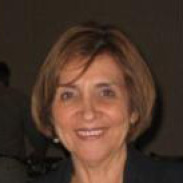
TDLC's The Educator Network
Recent
Forum Topic:
Why learning a foreign language is a crucial skill
We've heard about the value of learning a foreign language before, and this article makes a good case for it. What I thought was unique about this piece, however, is that they give some resources for online foreign language instruction. I think you will enjoy reading this. Click here to read.
|
|
|
 |
 |
TDLC Investigators Marian Bartlett, Gwen Littlefort, and Javier Movellan in the News
(Sept. 3, 2014)
Emotient Gains Exclusive Rights to New, Expansive Patent Issued for Automated Facial Action Coding System.
|
 |
Matching Learning Style to Instructional Method: Effects on Comprehension
A paper by former TDLC trainee Beth Rogowsky, along with Barbara Calhoun and TDLC's Director of Translation, Paula Talla, was recently published in the Journal of Educational Psychology (July 28, 2014).
|
 |
Dr. Gyorgy Buzsaki featured in articles about "Neurodata Without Borders"
The collaborative project is aimed at making databases about the brain more useable and accessible for neuroscientists worldwide.
 Neuroscience collaboration aims to increase data sharing(8/5/14, The Daily Californian) Neuroscience collaboration aims to increase data sharing(8/5/14, The Daily Californian)
 Prominent U.S. Research Institutions Announce Collaboration Toward Sharing and Standardizing Neuroscience Data (8/4/14, PR Newswire) Prominent U.S. Research Institutions Announce Collaboration Toward Sharing and Standardizing Neuroscience Data (8/4/14, PR Newswire)
|
 |
Dr. Gedeon Deák Interviewed on Hangout On Air
August 5, 2014
Click here to view the webcast
|
 |
TDLC's Terry Sejnowski featured:
Astrocytes, The Brain's Lesser Known Cells, Get Some Cognitive Respect
(Science 2.0, 7/28/14)
Read More

|
 |
TDLC Participated in Play Day for Educators!
TDLC’s RUBI and Gamelan projects were presented at the event, which was held at the San Diego Museum of Art in Balboa Park on July 24, 2014.
|
 |
Emotient featured in Forbes Magazine (6/18/14)
What Does The Future Of Retail Look Like?
Four Young Companies Provide A Glimpse
|
 |
Salk Researchers' Work Explains How Brain Selects Memories
(Times of San Diego, 5/20/14)
TDLC's Terry Sejnowski and fellow Salk Institute researcher Cian O'Donnell are featured in the article, which describes how "scientists at the Salk Institute in La Jolla have created a new model of memory that explains how neurons retain select memories a few hours after an event." More
|
 |
TDLC's Marian Bartlett and Jim Tanaka are featured in an article about Emotion Aware Google Glassware and Emotion Mirror App (a web-based Autism Intervention App): Emotient to Present Emotion Aware Google Glassware at Vision Sciences Society 2014 (Digital Journal, 5/12/14). More 
|
 |
Fred Gage and Team are Featured in Salk Press Release: New stem cell research points to early indicators of schizophrenia (5/12/14)
The article describes the findings of their study, published online in April's Molecular Psychiatry, that "support the theory that the neurological dysfunction that eventually causes schizophrenia may begin in the brains of babies still in the womb." Read More
|

|
Neurons Come in Many Different Shapes and Sizes
"Neurons — the nerve cells that make up the brain and nervous system — look different from all other cells in the body. And from one another." Unlike body cells, neurons have dendrites and axons that transport electrical and chemical messages in and out of the cell, and allow them to communicate with one another with amazing precision and speed. These dendrites and neurons have very diverse looks.
"The intricate branches, or arbors, of these extensions are what give neurons their beautifully strange and varied shapes ... Dendrite arbors, for example, make some neurons look like sea coral, others like spider webs, and still others like round balls of tumbleweed. Axonal arbors are equally diverse.
By studying the structural diversity of neurons, scientists are gaining greater insight into how the brain and the rest of the nervous system works." More
Click here to view stunning photos of the brain and of neurons taken by TDLC's
Gyorgy Buzsaki.
(*reference:
Neurons: A Curious Collection of Shapes and Sizes, in BrainFacts.org) |
|
|
 |

![]()
